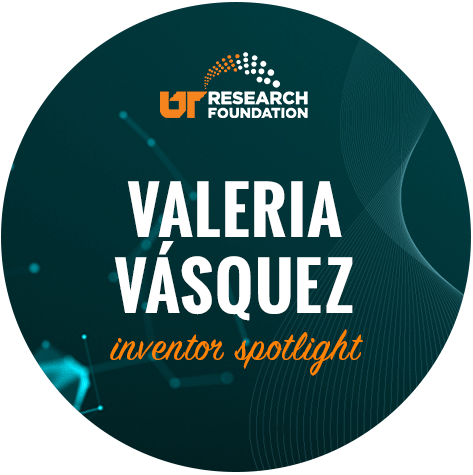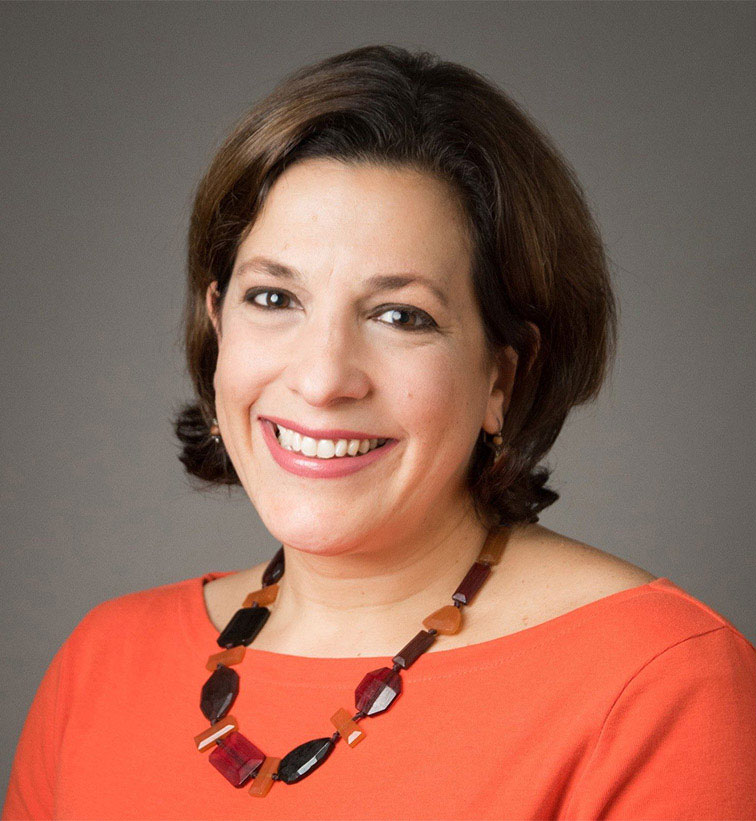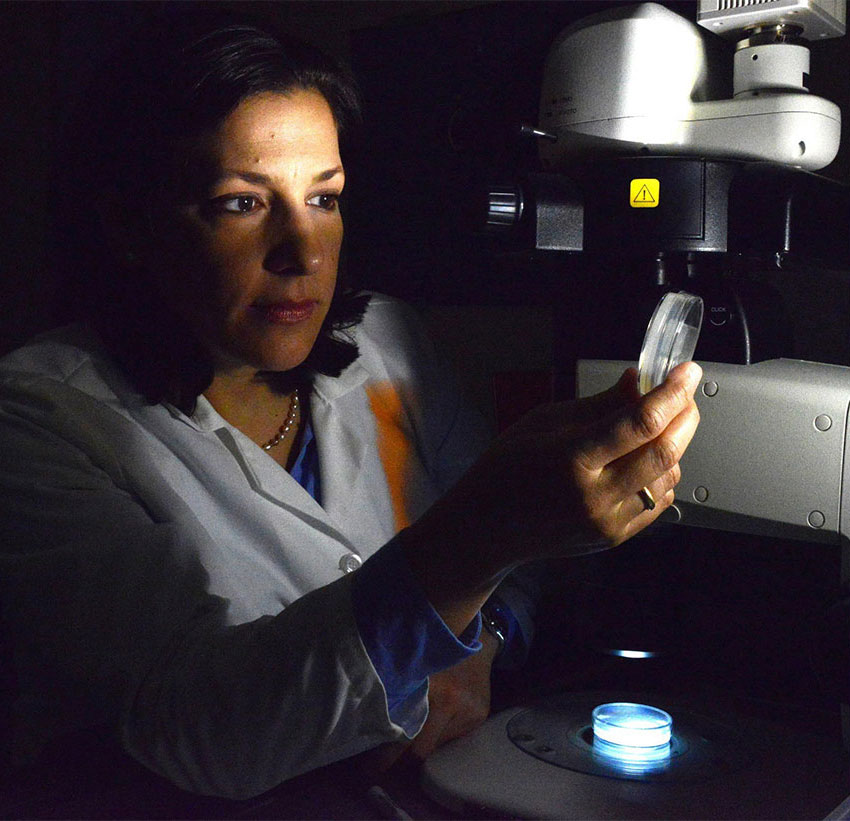 A Research Career Inspiring Innovation and Inclusion
A Research Career Inspiring Innovation and Inclusion
“I was trained in laboratories where innovation, hard work, and inclusion were the main driving force,” Dr. Valeria Vásquez comments as she reflects on her scientific research and opportunities to promote diverse, equitable, and inclusive environments in her profession.
Vásquez is an associate professor in the Department of Physiology in the College of Medicine at University of Tennessee Health Science Center (UTHSC). Her research aims to understand the functional and structural basis of mechanosensitive ion channels responsible for touch, pain, and proprioception.

Mechanosensitive ion channels are membrane proteins that translate mechanical stimulation into electrical signals that lead to physiological or perceptual responses. They act as sensors for a number of systems including senses of touch, hearing, urination, and balance. Research has shown that they can contribute to a condition called tactile allodynia, where the body perceives pain in seemingly harmless physical stimuli such as a simple touch.
Originally from Caracas, Venezuela, Vásquez went to the University of Virginia to pursue a PhD in Molecular Physiology and Biological Physics. While there, she worked with mechanosensitive ion channels, a field in which few other researchers where working at the time. She continued working in the mechanosensitive ion channel complex in nematodes during her postdoctoral training at Stanford University. In 2010 scientists at the Scripps Research Institute discovered two mammalian proteins —Piezo1 and Piezo2 — that sensed mechanical stimulation, a discovery that edified Vásquez’s earlier research in that area.
In her laboratory, Vásquez discovered that the dietary fatty acid called margaric acid can modulate the activity of Piezo channels. Her end goal is to translate this finding into a topical lotion with margaric acid that would provide relief for people suffering from mechanical pain or similar conditions.
“For example, you get a sunburn or an injury that makes your skin more sensitive to touch, so the idea would be to provide lotions to alleviate mechanical pain originated from inflammation,” she says.
Vásquez submitted an invention disclosure to UTRF, which subsequently filed a provisional patent application in February 2020. Before this submission, it never crossed her mind to apply for a patent. Dr. Harry Kochat, director of the UTHSC Plough Center, encouraged her to file a patent due to the translational possibilities of her discovery. She is currently working with the Plough Center to develop this lotion formulation.

When Vásquez brought her invention to UTRF, she said Dr. Lakita Cavin, Senior Staff Attorney at the UTHSC office, went above and beyond to explain the patent process, which Vásquez compared to understanding a different language.
“Dr. Vásquez is a brilliant researcher who has made astounding contributions to her field,” expresses Dr. Cavin. “UTRF is proud to partner with researchers like Dr. Vásquez who not only want to use their inventions to help people in need but who also actively seek to make their field a more equitable space for others.”
Vásquez was recently named one of the Top 100 Inspiring Hispanic-Latinx Scientists in America by the scientific blog, Cell Mentor. She was elected to the list due to her research, mentorship, and dedication to inclusivity in her field.
“I remember being in my biology classes in Venezuela, where 60 or 70 percent of the students around me were females,” she recalls. “Then in grad school, the same – 50 or 60 percent are female. Then I become an associate professor, and could easily recognize the gender disparity, thinking, ‘Where did all my friends go?’”
She currently serves as the president of the Latin American Biophysical Society and councilor for the Society of General Physiologists, where she works to make scientific fields more diverse, equitable, and inclusive.
“I have become increasingly aware of how lucky I have been on the opportunities I was offered,” she explains. “Now, I am working to promote diversity, and inclusion so underrepresented trainees have more opportunities to get ahead.”